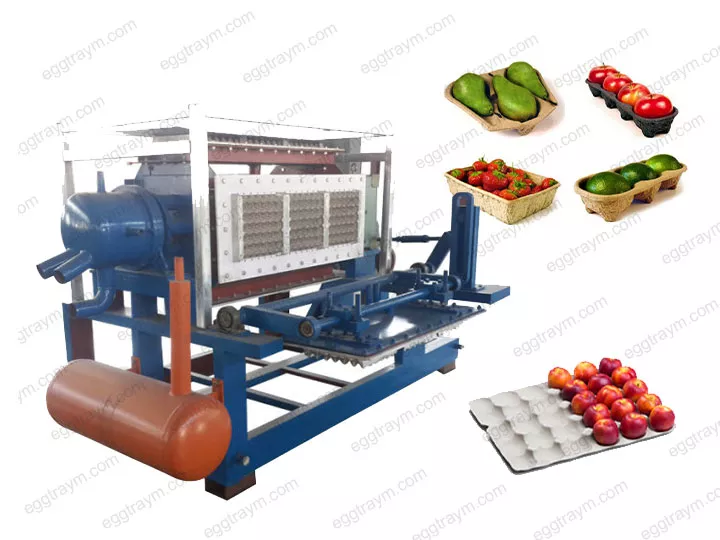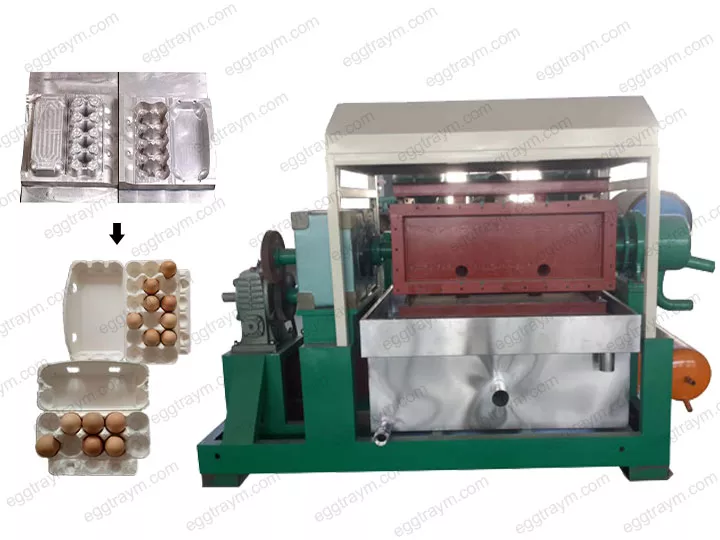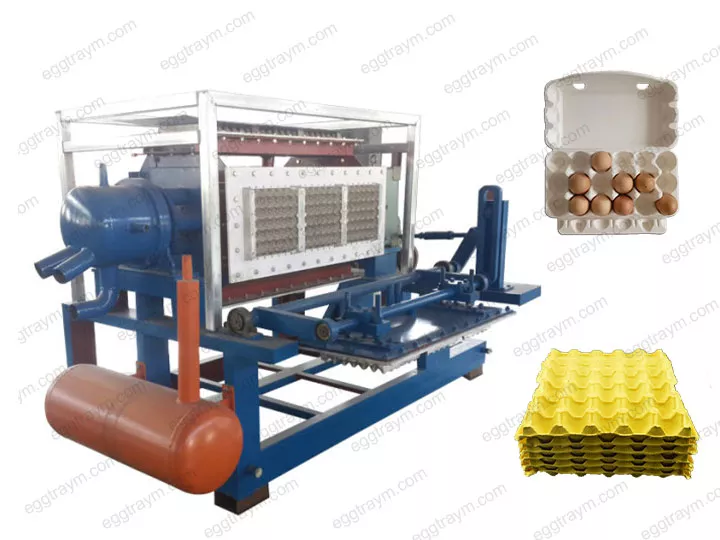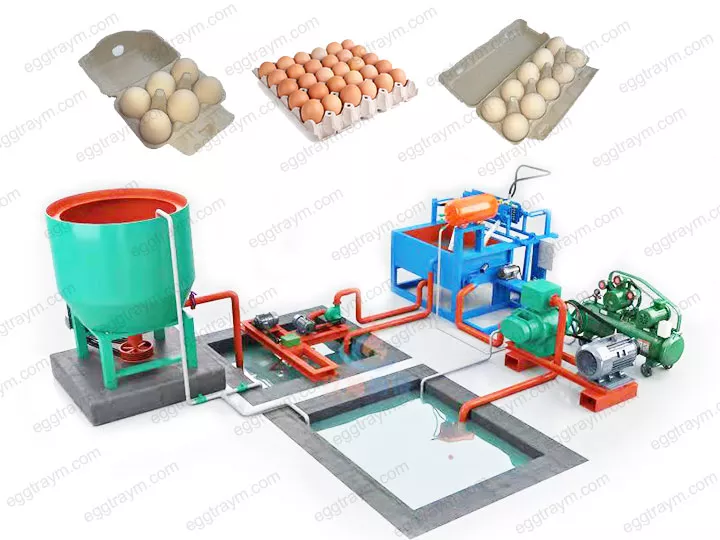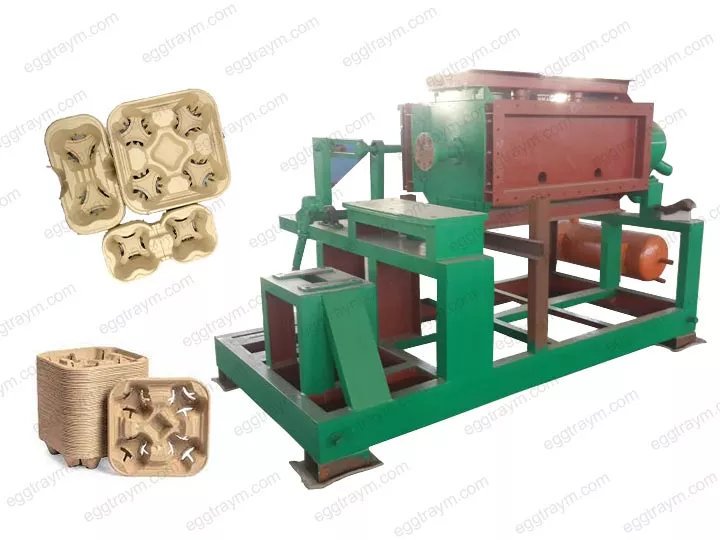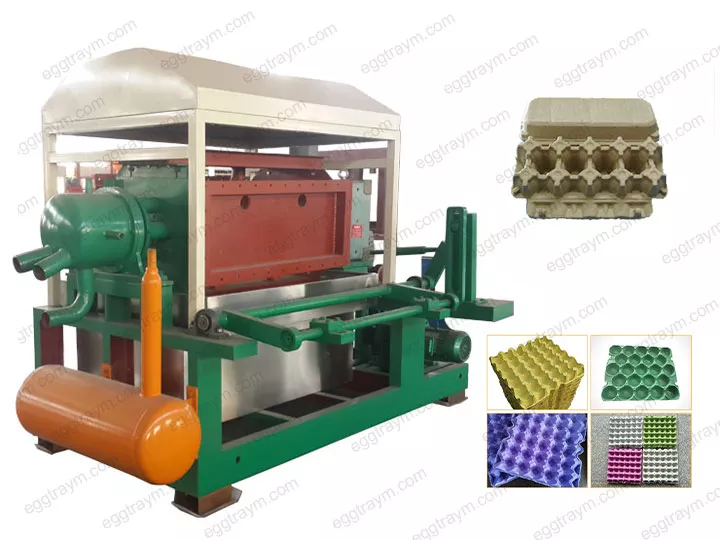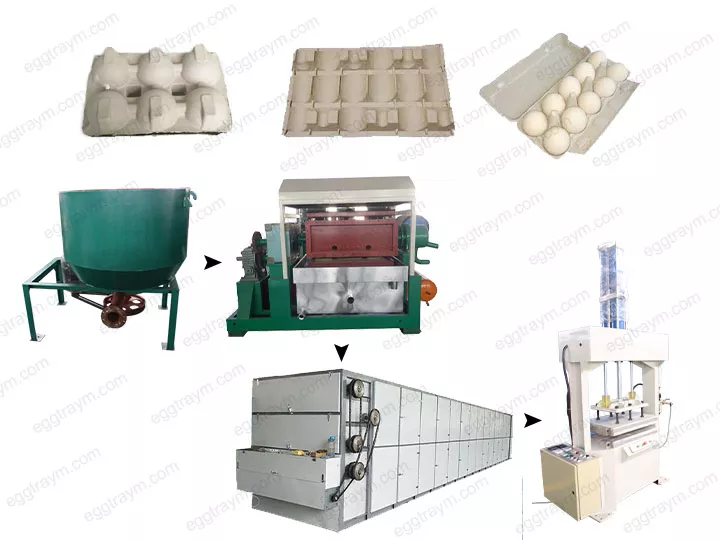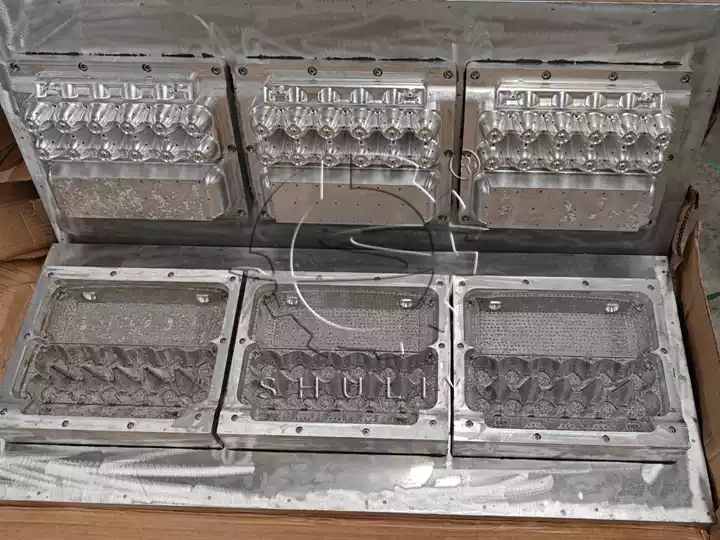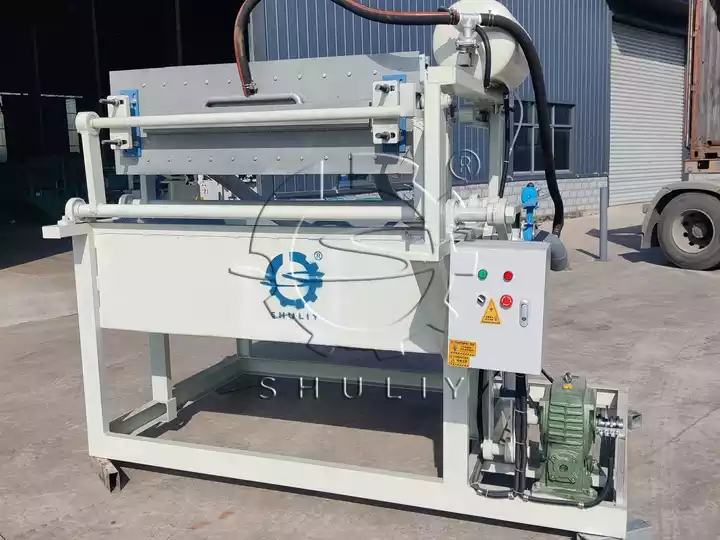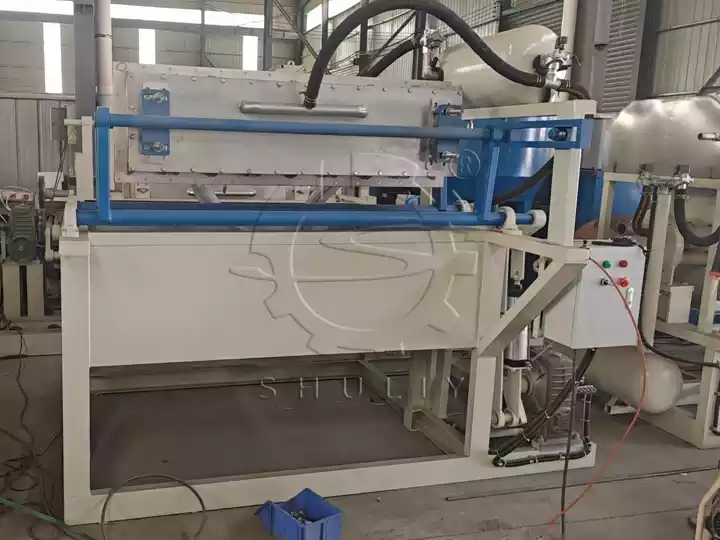Apa Bahan Baku Pembuatan Egg Tray?
Baki telur berperan penting dalam menampung telur unggas dan dapat dibuat dari berbagai bahan. Setiap jenis bahan menawarkan karakteristik dan keunggulan berbeda untuk produk akhir. Pada artikel ini, kita akan membahas bahan baku utama yang digunakan dalam produksi baki kertas, beserta sifat-sifatnya, serta kelebihan dan kekurangan masing-masing bahan.
Bubur kertas daur ulang
Pulp daur ulang merupakan bahan mentah yang banyak digunakan untuk pembuatan baki telur. Sumbernya berasal dari produk kertas bekas seperti koran bekas, majalah, dan kotak karton. Serat dalam pulp daur ulang relatif pendek, sehingga baki kertas menjadi lebih lembut dan kurang tahan lama dibandingkan dengan baki kertas yang terbuat dari jenis pulp lainnya. Bahan ini mengandung komponen alami seperti selulosa dan lignin, serta tahan terhadap air dan panas.
Fitur
- Murah karena proses pembuatannya tidak rumit dan akses bahan bakunya mudah.
- Ramah lingkungan karena memanfaatkan produk kertas bekas daur ulang.
- Peningkatan kualitas tahan air dan tahan panas dicapai dengan memasukkan bahan tambahan kimia.
- Berkurangnya daya tahan dan kekuatan jika dibandingkan dengan jenis pulp lainnya.
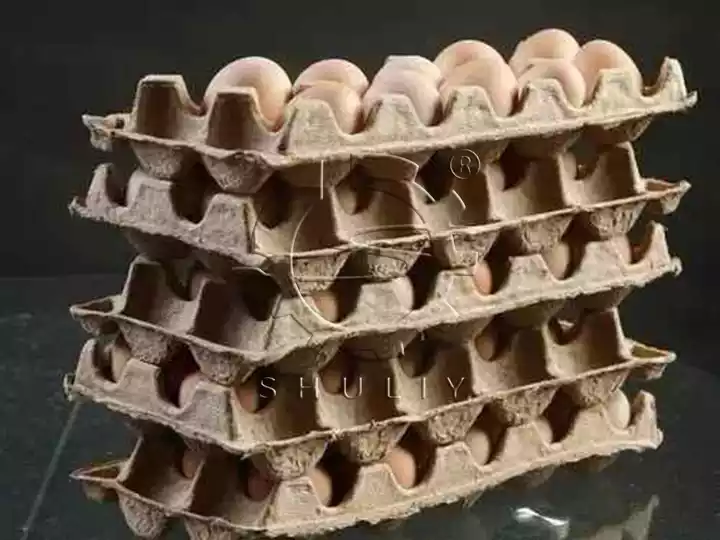
Bubur kayu perawan
Pulp kayu murni diproduksi dari kayu menggunakan proses pembuatan pulp kimia atau mekanis. Ini dapat dibagi menjadi dua kategori utama: pulp kayu keras dan pulp kayu lunak.
- Serat pulp kayu keras yang tebal dan pendek menghasilkan kertas yang padat dan kokoh sehingga cocok untuk kemasan.
- Sebaliknya, serat pulp kayu lunak panjang dan tipis, sehingga memberikan fleksibilitas dan karakteristik pencetakan yang sangat baik pada kertas.
- Biasanya, pulp kayu keras lebih disukai untuk pembuatan karton telur karena kekuatan dan daya tahannya.
Karakteristik
- Baki telur kuat dan tahan lama, serta menjaga bentuknya dengan baik.
- Mereka memiliki tampilan dan tekstur premium.
- Biaya produksi meningkat, menyebabkan harga eceran lebih tinggi.
- Daya saing pasar terbatas karena biaya-biaya ini.
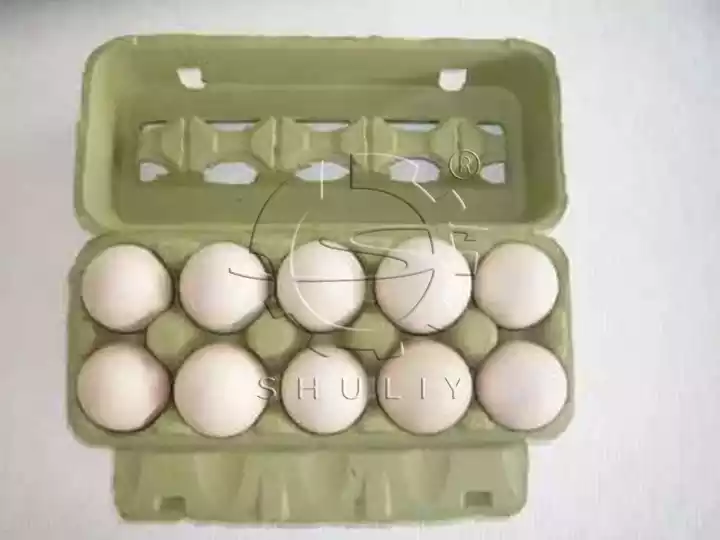
Bubur ampas tebu
Pulp ampas tebu berasal dari produk samping pabrik gula. Ini berfungsi sebagai sumber serat yang berkelanjutan dan ramah lingkungan untuk pembuatan kertas. Serat berukuran sedang memiliki kekuatan dan keuletan sedang, menawarkan perlindungan yang sangat baik dan kualitas penyerap goncangan.
Fitur
- Karton telur yang kokoh dan tangguh dirancang untuk penyerapan guncangan yang unggul.
- Pilihan ramah lingkungan dan berkelanjutan.
- Biaya produksi lebih tinggi dibandingkan pulp daur ulang.
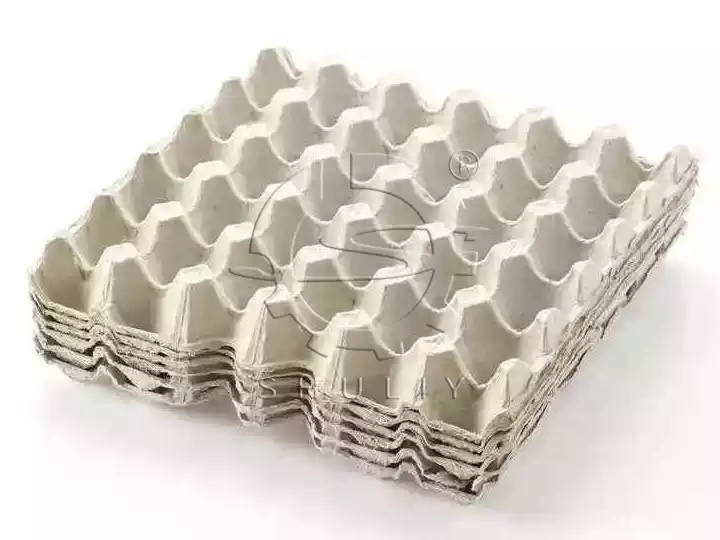
Kesimpulan
Pemilihan bahan baku produksi egg tray dipengaruhi oleh berbagai faktor, seperti kebutuhan produksi, positioning produk, dan pertimbangan biaya.
Limbah bubur daur ulang adalah pilihan yang hemat biaya dan ramah lingkungan, meskipun cenderung kurang awet. Sebaliknya, limbah bubur kayu murni menghasilkan karton telur yang kuat dan tahan banting, tetapi dengan harga yang lebih tinggi. Bubur serutan tebu menonjol sebagai opsi yang berkelanjutan dan ramah lingkungan dengan kinerja yang sangat baik, meskipun dengan biaya yang lebih tinggi.
Penting untuk menilai faktor-faktor ini dengan cermat untuk menentukan bahan baku yang paling sesuai dengan kebutuhan produksi baki kertas Anda. Sebagai produsen mesin pembuat baki telur dengan pengalaman lebih dari 20 tahun, kami menyediakan berbagai solusi yang disesuaikan dengan kebutuhan produksi Anda. Jangan ragu menghubungi kami untuk pertanyaan apa pun!

